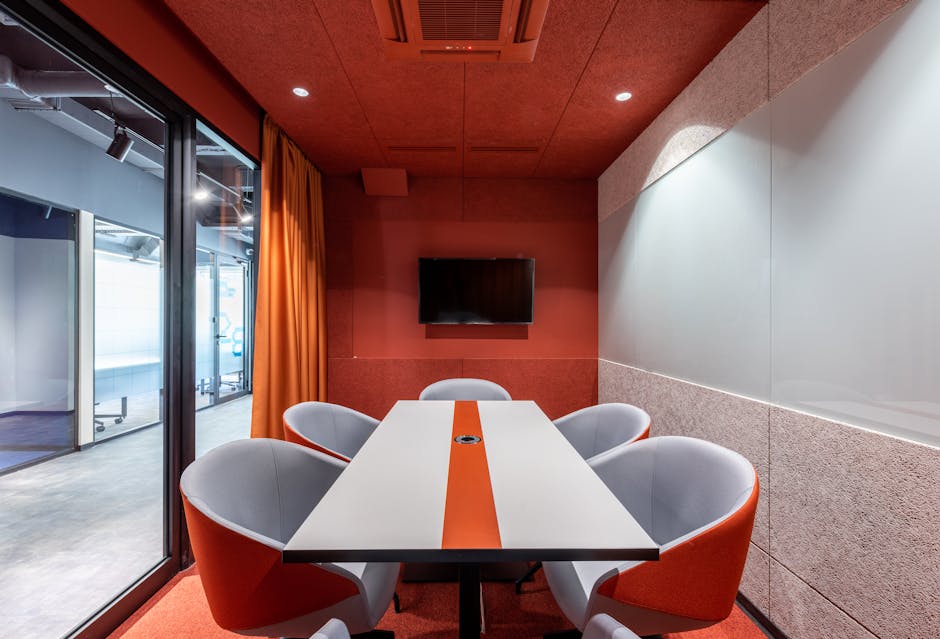Revolutionizing Office Meetings: The Future of Conference Rooms
"The office conference room is undergoing a major transformation, driven by advances in technology, evolving work styles, and a focus on collaboration. This article explores the latest trends shaping the future of meeting spaces, from smart technology integration to flexible designs that foster creativity and productivity. "

The humble office conference room, once a simple space for gatherings and presentations, is undergoing a remarkable transformation. As the nature of work evolves and technology advances, the traditional boardroom is being reimagined to meet the needs of modern businesses and their employees.

The Rise of Smart Meeting Rooms
One of the most significant changes in conference rooms is the integration of smart technology. From voice-activated controls to wireless content sharing, these innovations are making meetings more efficient and engaging. Smart whiteboards, for example, allow teams to collaborate in real-time, with the ability to save and share notes instantly.
Digital meeting conference room signage is another game-changer, providing real-time information about room availability, upcoming meetings, and even the occupants' status. This technology not only streamlines the booking process but also helps optimize space utilization.
Designing for Flexibility and Collaboration
The physical design of conference rooms is also evolving to accommodate diverse work styles and encourage collaboration. Many companies are opting for modular furniture and movable walls, allowing them to reconfigure the space as needed. This flexibility is particularly valuable for agile teams that frequently switch between different modes of work.

In addition to flexibility, conference room designs are incorporating elements that foster creativity and productivity. Biophilic design, which brings nature into the workspace through plants, natural light, and organic materials, has been shown to reduce stress and improve cognitive function. Ergonomic furniture and thoughtful acoustics also contribute to a more comfortable and focused meeting environment.
The Future of Remote Collaboration
As remote work becomes more prevalent, conference rooms are being equipped with advanced video conferencing systems to enable seamless collaboration across distances. High-definition cameras, noise-canceling microphones, and interactive displays create an immersive experience that makes remote participants feel as if they're in the same room.
Some companies are even experimenting with virtual and augmented reality technologies to enhance remote meetings. These tools allow teams to collaborate in shared virtual environments, regardless of their physical location.

Balancing Technology with Human Connection
While technology is transforming the conference room experience, it's essential to strike a balance between digital tools and human interaction. After all, the primary purpose of meetings is to foster communication, build relationships, and drive decision-making.
To this end, many companies are creating office neighborhoods that combine conference rooms with informal collaboration spaces, such as lounges and cafes. These areas encourage spontaneous interactions and casual conversations, which can lead to valuable insights and stronger team bonds.

Conclusion
The future of office conference rooms is bright, with technology, design, and human factors converging to create spaces that are more efficient, engaging, and conducive to collaboration. As businesses navigate the changing landscape of work, investing in these innovative meeting spaces will be key to fostering productivity, creativity, and connection among employees.
By embracing smart technology, flexible designs, and a focus on human interaction, companies can transform their conference rooms into dynamic hubs of collaboration and innovation. The boardroom of tomorrow is here, and it's poised to revolutionize the way we work together.
Want to learn more about Room Booking?
Explore our complete guide with more articles like this one.


